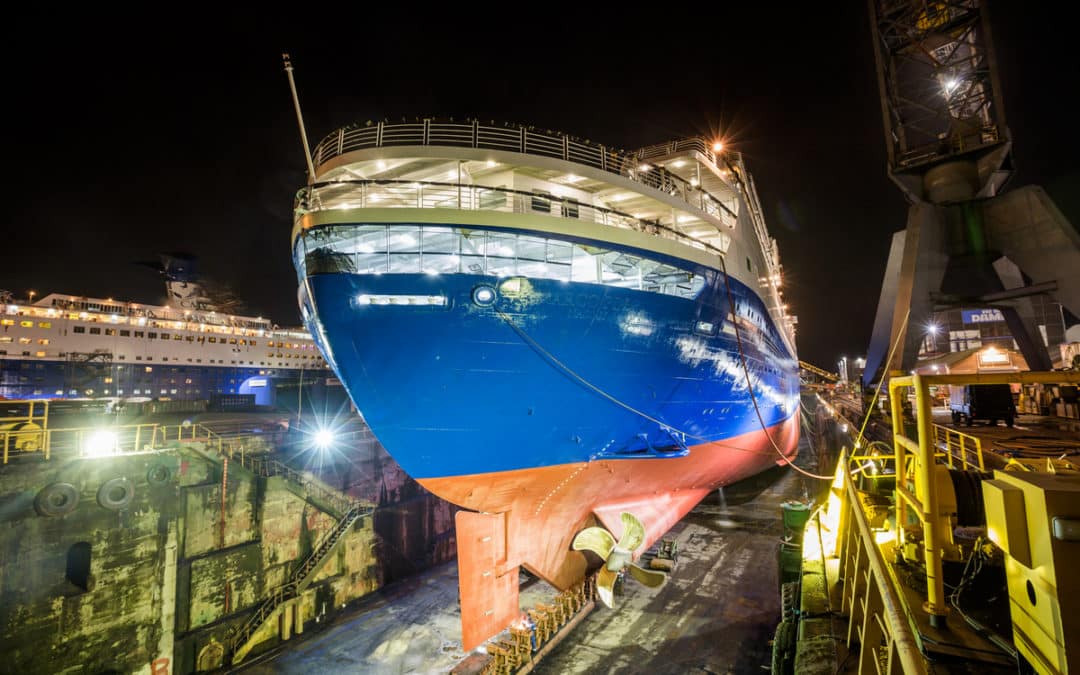In just five weeks over the course of November and into December, Damen Shiprepair Amsterdam has completed extensive annual repair and maintenance programmes on three cruises ships ahead of their winter season. The Magellan, Marco Polo and Astor are operated by the UK’s leading independent cruise line Cruise and Maritime Voyages.
First to dock at Damen Shiprepair Amsterdam (DSAm) was the 222-meter, 46,000 GT Magellan for a four-week schedule of works that included comprehensive cleaning and inspections, repairs to the main and auxiliary engines, the overhaul of the bow and stern thrusters and the servicing of the liferafts. As work proceeded, additional repairs were identified, an occurrence that was shared by all three vessels. For the Magellan this involved steel repairs to a series of tanks.
Two days after the arrival of the Magellan the 176-metre, 22,080 GT Marco Polo arrived alongside in dry dock no.3 for similar works that lasted three weeks, after which the similarly-sized Astor took her place for nine days of maintenance that included a range of pipe renewals, repairs to the main engine intercoolers and the renewal of the stern tube seals.
The programme called for a high degree of flexibility from the team at DSAm as the scope of the projects evolved over real time. In addition to the additional steel repairs, the decision was made by the client partway through to give the first two vessels a whole new exterior look to acknowledge their entry into a new market – French cruise. Following a comprehensive blasting of their hulls they each received a new, bright blue paint scheme to replace their previous white and deep blue livery as well as new logos.
“It was a busy time for everyone, and in particular for the client’s project team, given that there were three vessels involved, two of them simultaneously,” said Vincent Kok, DSAm project manager for Magellan, “but the cooperation was excellent. The critical pathway was determined by the paint works. With the Magellan, right up to the end painters were going up and down along the sides and the funnel, which was completely rolled.
“As is becoming the standard for these cruise vessels, we re-floated each one the day before they departed so that we could position the lifeboats in the water along one side of each vessel. This process was then repeated for the other side when they were at the lay-by berths, where they were berthed prior to final departure.”

